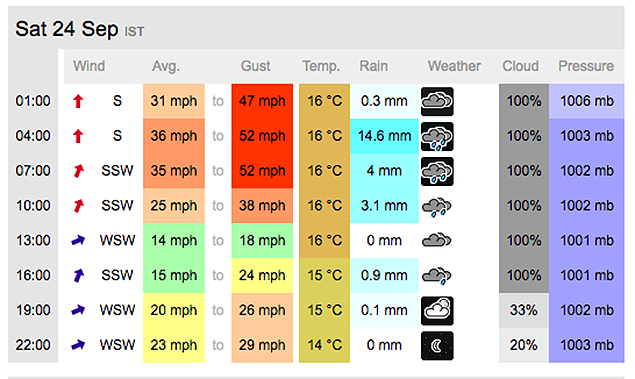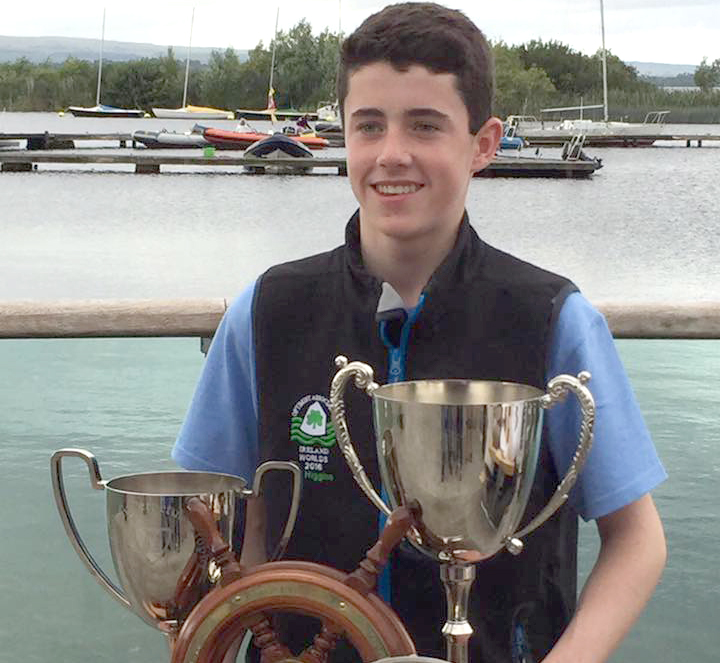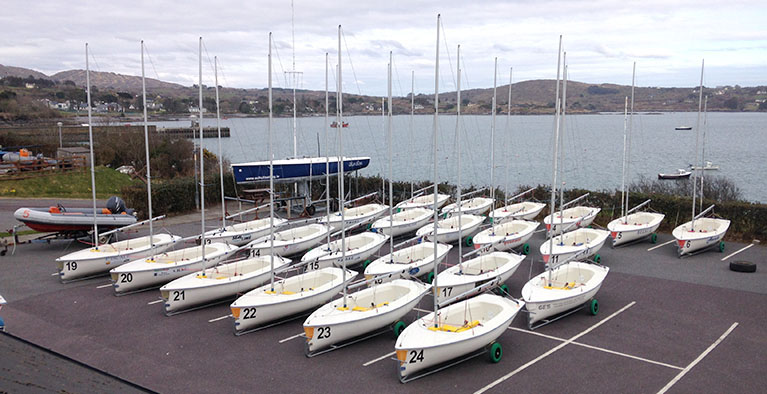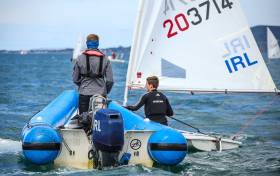Displaying items by tag: Dingle SC
Show of Youth Sailing Strength for Royal St. George As Big Breeze Forecast for Junior All–Irelands
Tomorrow's All Ireland Junior sailing championships looks like it will get off to a wet and windy start for the 16–nominated junior sailing stars drawn from seven yacht clubs from around the country.
The Under–18 championships is scheduled to race over two days in West Cork's own TR3.6 two handed dinghies but the weather forecast for the Schull venue shows winds topping 40–knots for Saturday and the same again on Sunday.
 XC weather forecaster shows big winds in Schull, West Cork tomorrow
XC weather forecaster shows big winds in Schull, West Cork tomorrow
In a show of strength for Dublin's Royal St. George Yacht Club more than a third of the participants are drawn from the Dun Laoghaire club. RStGYC juniors are representing the RS200 (Toby Hudson Fowler), the RS Feva (Henry Start), Laser 4.7 (Peter Fagan), Optimist (Tom Higgins), Topper (Jack Fahy) and Kate Lyttle from the 420 class.
 Multi–champion in the Optimist class, Tom Higgins from the Royal St. George, is nominated for this weekend's All Ireland Juniors in Schull
Multi–champion in the Optimist class, Tom Higgins from the Royal St. George, is nominated for this weekend's All Ireland Juniors in Schull
Royal Cork Yacht Club is the next biggest club on the water in Schull with four sailors involved. 29er skipper Harry Durcan and twin Johnny representing 29er and Laser Radials respectively. Harry Twomey represents the Optimist class and Sophie Crosby sails for the Toppers.
The National Yacht Club's Clare Gorman represents the Laser 4.7 and will defend the girls title and the NYC's Leah Rickard sails for the Optimists.
 Schull's own TR3.6 dinghies ready for the junior all Ireland sailors. Photo: Fastnet Marine
Schull's own TR3.6 dinghies ready for the junior all Ireland sailors. Photo: Fastnet Marine
The West coast is represented by three clubs.Topaz sailors Adam Byrne and Dylan Reidy representing Dingle SC and Foynes YC respectively and Sligo Yacht Club sends Mirror ace Sarah White.
The 420 class is represented by Geoff Power of Waterford Harbour Sailing Club.
Full nominee list below
| Class | Name | Surname | Club |
|---|---|---|---|
| RS200 Junior | Toby | Hudson Fowler | Royal StGeorge YC |
| RS Feva | Henry | Start | Royal St George YC |
| Mirror | Sarah | White | Sligo YC |
| Laser 4.7 | Clare | Gorman | NYC |
| Laser 4.7 | Peter | Fagan | Royal St George YC |
| Laser Radial | Johnny | Durcan | RCYC/NYC |
| Topaz | Adam | Byrne | Dingle SC |
| Topaz | Dylan | Reidy | Foynes YC |
| Topper | Jack | Fahy | RSTGYC |
| Topper | Sophie | Crosby | RCYC |
| 420 | Geoff | Power | WHSC |
| 420 | Kate | Lyttle | RStGYC |
| OPTIMIST | Tom | Higgins | RSGYC |
| OPTIMIST | Harry | Twomey | RCYC&CHSC |
| OPTIMIST | Leah | Rickard | NYC |
| 29er | Harry | Durcan | RCYC |






























































